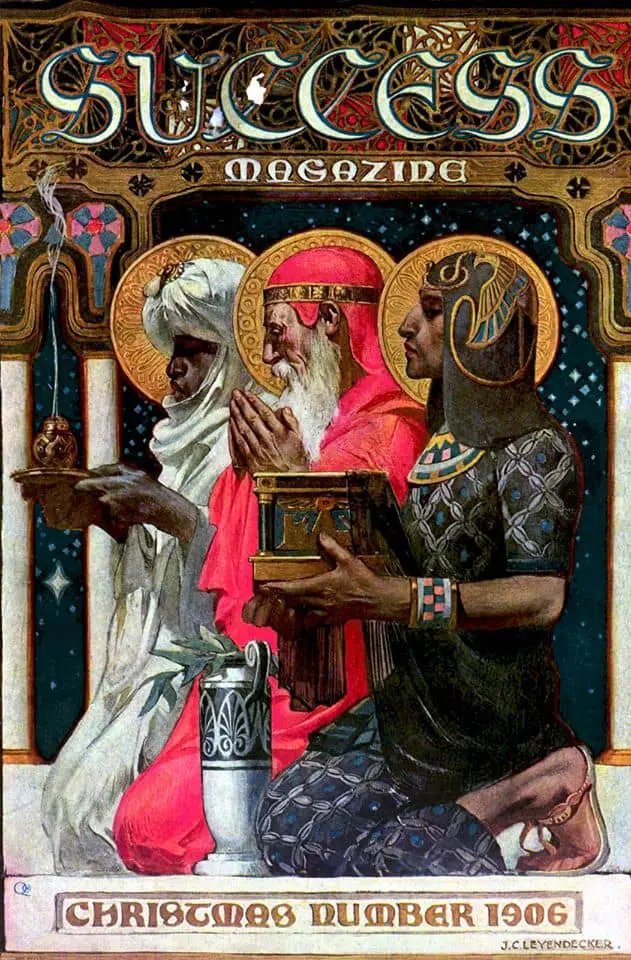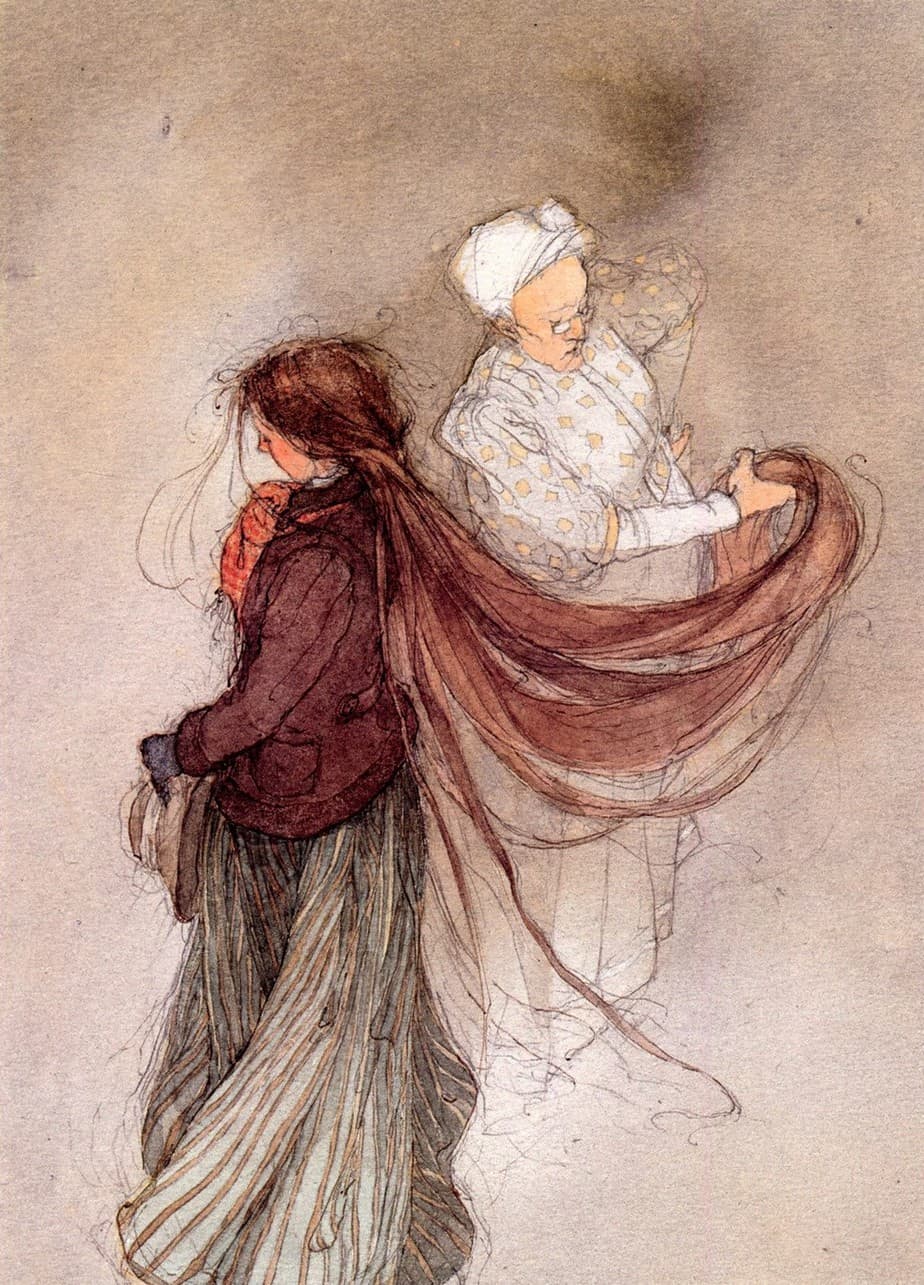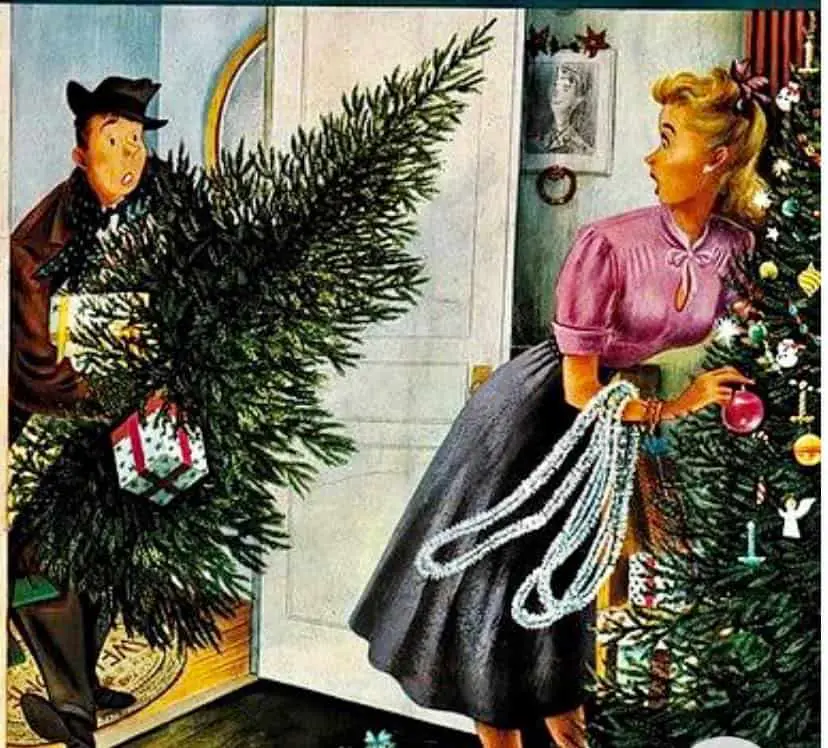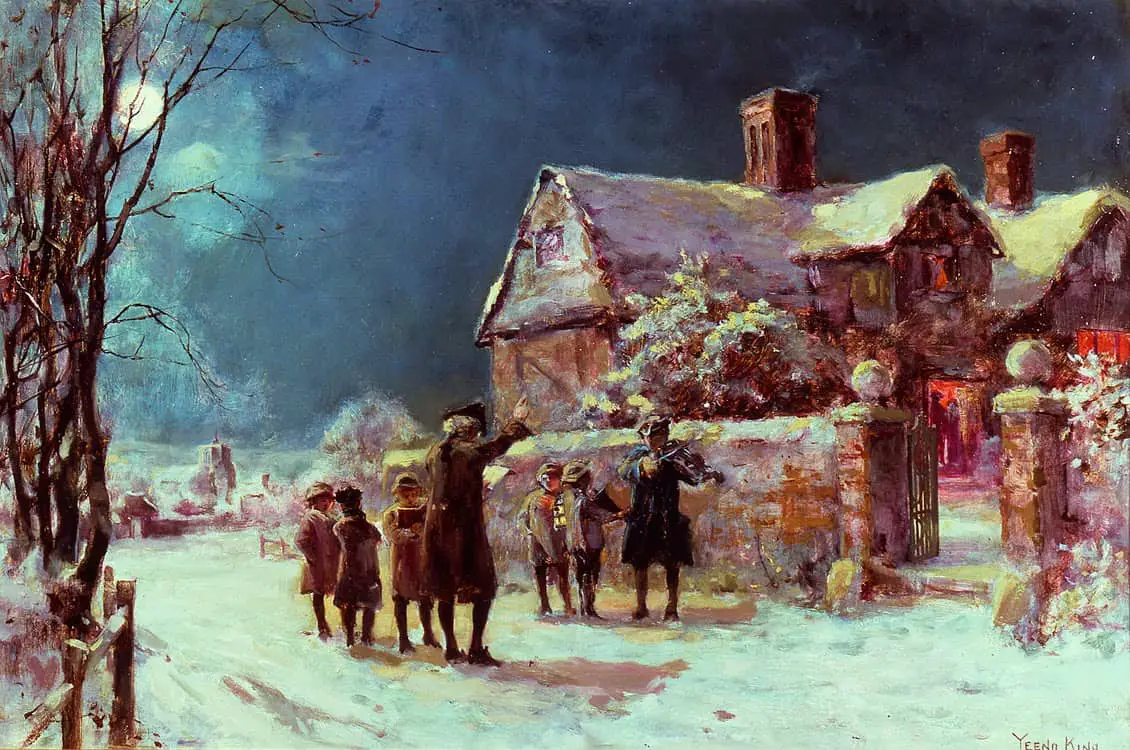See, “The Gift Of The Magi” (1905) is why we don’t buy secret gifts. Aren’t we always told in relationships that communication is key? Yes, yes it is. Either buy your own presents, or drop strong hints in the lead up to gift giving season.
Wait, that’s not what I’m meant to take away from this story, is it. For the likes of me, reading the story a century later, O. Henry does a Charles Perrault and tells us exactly what we’re supposed to takeaway in a dedicated paragraph at the end — that sacrificially giving gifts is excellent for human relationships.

THE MAGI
Magi were priests in Zoroastrianism and the earlier religions of the western Iranians. These guys were into astronomy, astrology, alchemy and other forms of ‘magic’. The words ‘magic’ and ‘magician’ in English come from ‘magi’.
In the Bible, magi get a mention in the Gospel of Matthew. They brought gifts for baby Jesus. These days they’re more often called Kings or Wise Men. This is how we come to associate Magi with gifts.

There are two main types of short stories — plotted and lyrical. O. Henry wrote the widely-beloved plotted kind, which amasses its entire weight at the end. “The Gift of the Magi” is also one of those rare short stories with a happy ending, so appeals to a wide audience.
I’m pretty sure I don’t believe [this], but which I’ll simulate here anyway: contemporary short story writers have gotten too specialized/dark/mopey. They don’t have enough “real life” in their stories—that is, they’re not taking up the real concerns of real readers. They aren’t storytellers, really (in that around-the-campfire sense) but margin-dwellers, writing stories in response (not to life itself), but to other hothouse stories, and all these stories do, really, is uphold a certain knee-jerk, lazy, default humanist ethic, etc., etc. Where’s the joy? Isn’t there lots to celebrate in life? This model (as you can tell) is dangerously close to reactionary (“Just write something I can read and I’ll read it! Why so negative! You sure seem well-fed enough, mister!”), and I don’t buy it for a number of reasons, the main one of which is that sometimes joy can express itself in strange ways, and also because stories have always been dark (i.e., Grimm’s Fairy Tales, the Crucifixion).
George Saunders
O. Henry was the pen name of William Sydney Porter.
STORY STRUCTURE OF “THE GIFT OF THE MAGI”
A NOTE ON VIGNETTES AND SLICE OF LIFE STORIES
Typically [vignette or slice of life stories] describe one situation or a relatively short period of time. The terms vignette and slice of life are often used interchangeably. Vignettes normally describe one or two brief scenes such as “The Gift of the Magi” by O. Henry. They are often light or ironic in tone. The slice of life can include multiple scenes over a limited period of time, like a vignette, but in tone they often depict a realistic, unpleasant or grim side of life. […]
Because the writer’s purpose may be to explore a character, idea, or relationship, these two forms often lack a plot—no rising slope of a dramatic arc. They may be devoid of plot like conflict or even inner observations. Therefore, success is heavily dependent upon strength of voice and style and originality of story. […]
Without a plot you will have to overcome the inertia with stage action (small character actions and gestures) and through emotional movement (shifts of emotions).
Elizabeth Lyons, Manuscript Makeover
I disagree with those who say that some narratives have plots and others don’t — every complete narrative has a structure, and I’m not sure what structure is if not a breakdown of plot.
SHORTCOMING
This is a story with two main characters, but the focus is on the young woman, named Della.
Della doesn’t have enough money to buy her husband a Christmas gift. This is a fairly childlike shortcoming to have, common to middle grade characters as well — a general lack of autonomy is her biggest shortcoming.
She is also psychologically needy when it comes to worry about how her husband will approve or disapprove of her beauty after she cuts off her hair, but this is a 21st century feminist reading. In a culture where a woman’s beauty is the main thing about her, the prospect of transforming from sexually attractive to unattractive is a shortcoming indeed.
DESIRE
Della wants to buy a good present for her husband to show him how much she cares for him.
OPPONENT
This story is structured like a romance in that each lover is the other’s opponent. But we don’t know this, or in what respect, until the end. O. Henry sets up a different kind of potential opposition (for suspense reasons) — will Della’s husband chastise her for cutting off her hair? Stay tuned to find out…
PLAN
First Della scrimps and saves on an already tight income.
But this isn’t enough for a decent gift so she donates her hair for a wig. This earns a substantial amount of money and with that she buys a chain for her husband’s fob watch.

BIG STRUGGLE
When Jim arrives home we are in Della’s head and a little anxious about what Jim’s going to do. We don’t know enough about Jim — might he even beat her?
ANAGNORISIS
The plot revelation is that they have each bought each other an expensive present which the other can’t use, precisely because they’ve each made a sacrifice for the other.

A NOTE ON TWIST ENDINGS
There is usually an ironic or cynical tone to such Returns, as if they mean to say “Ha, fooled ya!” You are caught foolishly thinking that human beings are decent or that good does triumph over evil. A less sardonic version of a twist Return can be found in the work of writers like O. Henry, who sometimes used the twist to show the positive side of human nature, as in his short story “The Gift of the Magi”. A poor young husband and wife make sacrifices to surprise each other with Christmas presents. They discover that the husband has sold his valuable watch to buy his wife a clip for her beautiful long hair, and the wife has cut off and sold her lovely locks to buy him a fob for his beloved watch. The gifts and sacrifices cancel each other out but the couple is left with a treasure of love.
Christopher Vogler, The Writer’s Journey
NEW SITUATION
They may be poor, but they are happy.
Here’s what’s not overtly critiqued, though readers may offer our own spin:
- consumerism as expression of love
- expensive items as markers of social status
- men, women, control and beauty
FOR FURTHER INVESTIGATION
O. Henry is the pen name of a guy (William Sydney Porter) imprisoned for embezzling money (after he tried to evade capture by fleeing from Texas to Honduras). He spent his time in prison writing cosy short stories, and he’s remembered mostly for this one, a lovely story about loving people who do nice things for each other.
Funny how that works.
Header painting: Henry John Yeend King – Twas the Night Before Christmas

